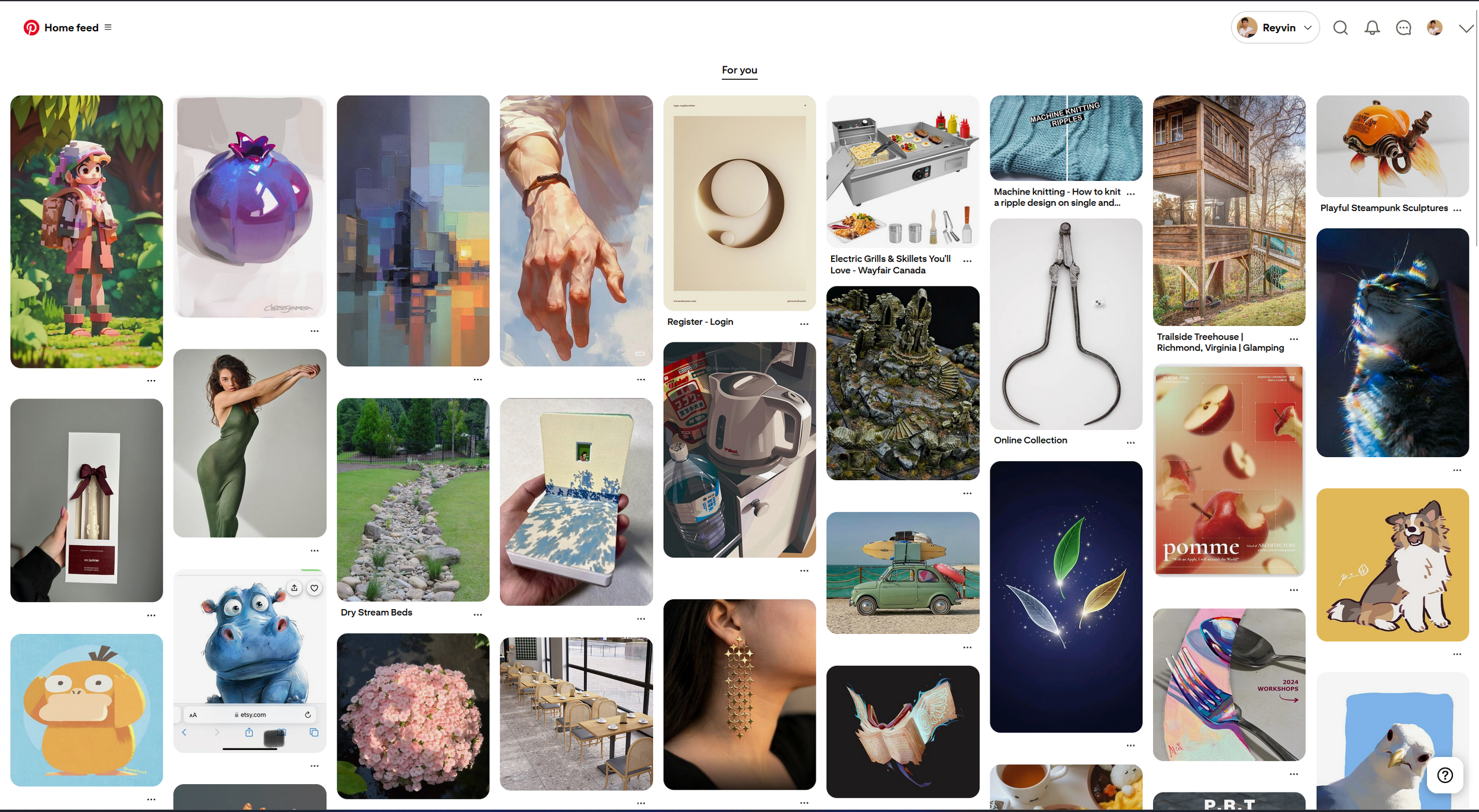When Tools Cost Less Than Dinner Out (And Two Other Discoveries)
The scrolling paradox (consuming vs creating)
For a creator, looking at art passively is like reading a recipe without cooking.
(You consume content but create no real learning.)
So many good references here
I used to scroll through platforms like PInterest absentmindedly, admiring incredible concept art and digital paintings. Thousands of images. Endless inspiration. Yet somehow, zero improvement in my own work.
The problem wasn't a lack of exposure—it was the nature of my engagement.
I'd see a stunning piece by an artist and think, "That's amazing" before scrolling to the next piece.
But amazing why? What specific lighting choices created that mood? How did the composition guide my eye? What color relationships made it feel so cohesive?
I was consuming art like entertainment instead of education.
That's when I discovered the power of systematic questioning. Instead of passive admiration, I started analyzing what specifically made pieces work. Every artwork became a learning opportunity rather than momentary inspiration.
Back in school, I was taught the difference between passive reading and active reading. Why not apply the same principle to other disciplines?
The shift changed everything. When you start asking, "How did they achieve this effect?" instead of just, "This looks cool," every piece of art becomes a masterclass waiting to be decoded.
Next time you encounter artwork that captivates you, pause and ask questions like these:
How did they arrange elements to guide your eye?
Where's the light source and how does it affect the mood?
What color choices support the overall concept?
Transform every piece of art you encounter from passive consumption into active learning. Your own work will thank you for it.
An alternative to Calendly (that costs $29 once, not $12/month forever)
I discovered Tidycal when booking with a fellow Filipino entrepreneur.
(One payment solved what Calendly charges monthly to fix.)
I needed to schedule a call with Alan Ngo, and his booking link led somewhere unfamiliar. Not the typical Calendly interface I'd grown accustomed to. At the bottom: "Powered by Tidycal."
Curious, I investigated.
Tidycal offered everything I actually needed: scheduling, payment collection, and availability customization. But here's what caught my attention—one-time payment of $29 versus Calendly's monthly subscription starting at $12.
Don't get me wrong, Calendly's monthly model makes sense for enterprises needing complex email workflows, large sales team routing, and deep CRM integrations. But as a solopreneur? I just need people to book and pay for sessions.
Most subscription tools are built for enterprise needs but marketed to solopreneurs. Before defaulting to the "industry standard," it's worth auditing what you actually use versus what you're paying for.
I started evaluating my tools through the "solopreneur lens": What features do I actually use daily? Am I paying monthly for enterprise features I'll never need? Are there one-time payment alternatives that cover my core needs?
For scheduling, Tidycal covers booking, payments, and availability for $29 once. For most solopreneurs, that's all you need. Sometimes the best solution isn't the most popular one—it's the one that fits your actual workflow without recurring overhead.
P mucb all I need for booking and TidyCal answers that.
Perfectionism vs Excellence (and why the difference matters for creators)
"We are what we repeatedly do. Excellence, then, is not an act, but a habit."
(Aristotle understood something about creation that perfectionists miss.)
My high school teacher, Mr. Pagsi, loved posting "Memorable Passages" in our classroom corner. The first one was Aristotle's quote about excellence being a habit, not an act, which I basically interpreted as doing your best in every single thing you do.
Years later, people called me a perfectionist. But that never felt accurate.
When I work on something—whether it's a painting, a business strategy, or this newsletter—I exhaust every option I can think of. I research, iterate, refine. Not because I need others to think it's perfect, but because I want to know I did everything possible.
If it still fails after giving my all, I have no regrets. I can confidently say I left nothing on the table.
That's not perfectionism. That's excellence.
The difference lies in motivation source and completion criteria. Perfectionism seeks external validation ("Will others approve?"). Excellence seeks internal satisfaction ("Did I give my best effort?").
It’s especially important when starting out as a creator in the online space. When you start posting or sharing your work online, you’re eventually bound to experience the crickets and chirps. No one replying. No one liking. No one reposting. And it might go on for months. It might lead you to start doubting that belief in yourself in doing something great.
I’ve also and am experiencing this too as I’m building my business :) What keeps me grounded, however, is the awareness that virality doesn’t necessarily equate to profitability. Justin Welsh even wrote a newsletter about it. JK Molina also puts it plainly: “Likes ain’t cash”.
And so, I’d rather stick to excellently refining the content I want to create, and the products I want to offer, and naturally attract those who resonate with what I do.
Before starting any creative project, I clarify my motivation: Am I doing this to avoid criticism or gain approval? Or am I doing this to honor my capabilities and effort?
I set criteria based on effort exhausted, not outcome achieved. One leads to growth. The other leads to paralysis.
Always remember: "Excellence honors your capability. Perfectionism honors others' opinions."
P.S. Thank you so much for reading!
If ever you feel called to, here are 2 ways I can help you:
Combine your creative skills systematically - 1-on-1 sessions where we map your unique skill combinations and create your personalized growth strategy. Perfect for peeps ready to integrate art, business, and self-cultivation. [$230/hour]
Transform your ideas into visual concepts - Custom conceptual artwork that brings your business vision, personal philosophy, or creative project to life. [Commission rates vary]

